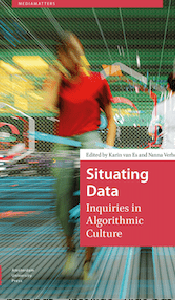AI Ethics and Governance in Practice is a program designed to equip project teams with the knowledge and tools to ensure the responsible development and deployment of Artificial Intelligence (AI) systems. It emphasizes the importance of integrating ethical considerations into the entire AI development lifecycle, from initial design to ongoing operation.The program focuses on a Process Based Governance (PBG) Framework, which outlines key components for ensuring ethical AI practices.
Recommended for:
- Developers and engineers working on AI projects
- Project managers and decision-makers in organizations implementing AI
- Policymakers and regulators involved in AI governance
- Anyone interested in responsible AI development and implementation
You will:
- Gain a comprehensive understanding of the key ethical considerations surrounding AI systems.
- Learn about the Process Based Governance (PBG) Framework for ethical AI development.
- Explore key components of the PBG Framework, including fairness, accountability, explainability, and sustainability.
- Develop practical skills for integrating ethical considerations into your AI projects.
- Understand the challenges and opportunities for responsible AI governance.
The AI Ethics and Governance in Practice series
Here is the list of titles available in AI Ethics and Governance in Practice series:
- AI Ethics and Governance in Practice: An Introduction
- AI Sustainability in Practice
- AI Fairness in Practice
- Responsible Data Stewardship in Practice
- AI Safety in Practice
- AI Explainability in Practice
- AI Accountability in Practice
Detailed Overview
AI Ethics and Governance in Practice tackles the critical need for ethical considerations in the development and deployment of AI systems. This program, developed by The Alan Turing Institute, provides a practical framework for project teams to ensure their AI initiatives are responsible and trustworthy.
The program emphasizes that achieving ethical AI requires integrating these considerations throughout the entire development lifecycle, not just as an afterthought. It introduces the Process Based Governance (PBG) Framework as a structured approach to implementing ethical principles in AI projects.
The PBG Framework outlines eight key components that should be addressed for responsible AI development:
- Sustainability: This component focuses on ensuring that AI systems are designed and used in a way that is environmentally sustainable and socially responsible.
- Technical Safety: This component addresses the importance of building robust and secure AI systems that minimize the risk of unintended consequences.
- Accountability: The PBG Framework emphasizes the need for clear lines of accountability for the decisions and actions of AI systems.
- Fairness: This component focuses on ensuring that AI systems are fair and unbiased in their decision-making processes.
- Explainability: The framework underscores the importance of developing AI systems that are explainable and understandable, allowing users to comprehend how they reach conclusions.
- Data Stewardship: This component emphasizes responsible data management practices to ensure data used to train and operate AI systems is accurate, unbiased, and collected ethically.
- Privacy: The PBG Framework acknowledges the importance of protecting user privacy and minimizing the potential for data misuse by AI systems.
- Human Rights: This component reminds developers to consider the potential impact of AI systems on human rights, such as freedom from discrimination and privacy.
By addressing each of these components within the PBG Framework, project teams can build AI systems that are not only effective but also ethical and trustworthy.
A more detailed breakdown of the program content can be found in the Summary of AI Ethics and Governance in Practice document (https://www.turing.ac.uk/sites/default/files/2023-11/summary-ai-ethics_0.pdf). This document provides summaries of each module within the program, offering deeper insights into specific aspects of the PBG Framework.
AI Ethics and Governance in Practice empowers developers, project managers, and other stakeholders to champion responsible AI practices. By understanding the ethical considerations and applying the PBG Framework, we can ensure that AI technology serves humanity in a positive and beneficial manner.
Citation and Licensing
Leslie, D., Rincón, C., Briggs, M., Perini, A., Jayadeva, S., Borda, A., Bennett, SJ. Burr, C., Aitken, M., Katell, M., Fischer, Wong, J., and Kherroubi Garcia, I. (2023). AI Ethics and Governance in Practice: An Introduction.. This workbook is published by The Alan Turing Institute and is publicly available on their website: https://www.turing.ac.uk/news/publications/ai-ethics-and-governance-practice-introduction
Providing a hyperlink to the original source is generally considered legal, as:
- The content is already published and publicly accessible on the original website.
- This page is not reproducing or republishing the full content but only providing a link to the original source.
- This page is not modifying or altering the content in any way.







